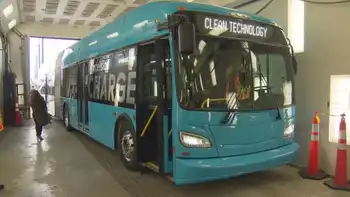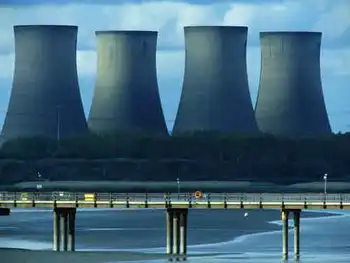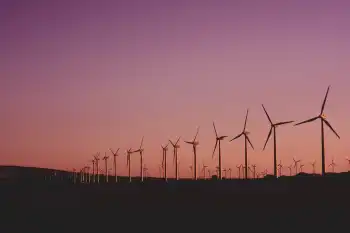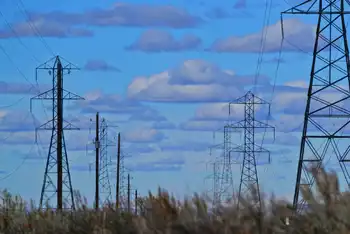NV Energy tests smart meters in valley initiative
Similar projects across the country have drawn consumer complaints of skyrocketing electricity bills and inaccurate meter readings, but NV Energy executives say they have a launch strategy to dodge the smart meter pitfalls that have ensnared other utilities.
First, about those meters: As part of its Advanced Service Delivery project, NV Energy plans to install smart meters, digital kilowatt counters that let consumers track power use and adjust consumption to control their electric bills. Utilities in other states have begun replacing traditional meters with networked smart meters that allow them to track consumers' power use in real time from the power company's headquarters, eliminating the need for meter-reading crews and giving ratepayers more detailed information on how much power they're using.
NV Energy executives say smart meters will reduce the company's operating costs. Helping consumers see where they can conserve power will limit the need for new generating capacity, they add, and that should mean lower rates over the long haul.
Michael Yackira, president and chief executive officer of NV Energy, called the advent of smart energy infrastructure a "time of transition and transformation" for the electric industry.
In its earliest phase, Advanced Service Delivery will simply tell interested customers daily what their monthly power bill is up to that date. Power users could get their account's updated details from NV Energy's Web site, through its automated phone system or by calling a customer-service representative. Knowing what they've spent mid-billing cycle should enable consumers to adjust consumption and rein in energy expenses.
Advanced Service Delivery could eventually provide more details, including hourly updates on power costs. If allowed by the Public Utilities Commission, NV Energy could change the way it bills for electricity. Instead of charging 12 cents for each and every kilowatt-hour of power consumed in a monthly billing cycle, the company might charge a different retail rate for different times of day to more closely reflect the cost of buying wholesale power on the open market during peak load times of day. What those rates might be have yet to be determined, but the cost to purchase power at the peak on a summer afternoon can vary drastically compared with the cost of buying power at night.
If a consumer could see that the cost per kilowatt hour will be cheaper later in the day, he could put off running the clothes dryer, or kick up the temperature on his thermostat and cut down on air conditioning. NV Energy officials say shifting power use to non-peak hours could save consumers as much as 15 percent on their electric bills.
NV Energy just landed $138 million in federal stimulus money to help cover the cost of Advanced Service Delivery. The project's total price tag will run about $300 million, and at least some of the unfunded share might come in the form of higher electric rates or surcharges on customers' bills. A small pilot program would begin in 2011, and NV Energy plans to change out the rest of Nevada's 1.45 million meters in 2012. The utility said installation of the meters could create about 200 jobs. The company has 72 meter readers on staff now.
But consumers from Australia to Canada are protesting similar initiatives, saying smart meters and the nuanced billing practices the meters allow have sent power bills sky high and imperiled personal privacy. In the United States, ratepayers have filed lawsuits over the meters, and officials in states including California, Connecticut, Texas and Maryland have questioned the meters' application and costs.
"Smart meters were sold to us as a way to help consumers better understand (power) usage and save money, but in fact, they've had the opposite effect," said Mindy Spatt, communications director for The Utility Reform Network in San Francisco. "Consumers claim the meters are inaccurate and their bills have gone up, so we would say they certainly don't appear to have helped consumers understand their usage. It's simply not clear to us from what the utilities presented here (in California) that the benefits are commensurate with the costs."
Hundreds of Pacific Gas & Electric customers in the Golden State have complained to the state's Public Utilities Commission, saying smart meters have meant incorrect use readings and higher bills. More than 500 of the utility's customers filed a class-action lawsuit accusing the company of negligence, fraud, deceit and false advertising.
Nevadans needn't worry about those issues because NV Energy is learning from other utilities' mistakes, said Robert Stewart, the company's senior vice president of customer relationship. NV Energy's Advanced Service Delivery rollout will happen slowly, with serious security safeguards to boot.
"It's a very deliberate process we're taking to make sure we don't get into some of the same missteps" as other utilities that installed smart meters, Stewart said.
To protect against inaccurate meter readings, NV Energy will launch a voluntary Advanced Service Delivery pilot program involving 10,000 meters. The utility will keep standard meters online next to smart meters at some locations and hire a third party to verify the new meters' precision before the company switches out all electric meters in the state, Stewart said. Nor would NV Energy's system estimate use or calculate consumption at the meter, as Pacific Gas & Electric's system did when it tripled that Bakersfield customer's electric bill during a blackout.
As for furnishing hourly updates on electricity costs and charging consumers based on peak demand, NV Energy won't add those features until the right technology is available and has been tested, Stewart said. The Public Utilities Commission of Nevada must also change regulations governing how power companies bill for use. Plus, participation in such energy tracking will be optional. NV Energy won't require ratepayers to move their electricity use to nonpeak hours, but consumers would have to pay higher prices for power used during the peak hours of 2 to 7 p.m.
As for ratepayer privacy, Stewart said consumer data is stored behind NV Energy's computer network firewalls, and the vast majority of meter locations will be linked to an internal, secured fiber network, also firewall protected.
"Looking around the country, we're taking and bringing into our plan the lessons California and other places are learning," Stewart said. "We're appreciative of the fact they've gone before us, because it really is setting up our ability to bring this capability to Nevada and orient it toward customer benefits."
Asked to discuss what issues or concerns the state Public Utilities Commission might have with smart meters, Commissioner Rebecca Wagner said it would be inappropriate to comment on Advanced Service Delivery, which is pending in filings before the agency.
Nevada Consumer Advocate Eric Witkoski, who's tasked with protecting the interests of utility ratepayers, said Advanced Service Delivery has "a lot of issues," but he wouldn't elaborate on those issues. He said he plans to file project-related testimony with the state Public Utilities Commission in April.
Other consumer advocates say they don't believe today's smart meters really serve ratepayers.
Consumers actually have little discretion in how they use power, Spatt said. Take air conditioning as an example. Dodging peak-power rates would mean that many homeowners would have to leave the air conditioning off for an hour or two after they returned home from work or school. Other households have homebound relatives who can't work or go out during the day, and still others have kids coming home from school mid-afternoon. And while consumers could save money by unplugging energy vampires such as televisions and computers when they leave home, the biggest energy users, such as refrigerators, must stay connected all the time. That means many consumers couldn't avoid paying some higher peak power rates, Spatt said.
Besides, smart meters aren't energy saving devices; they're energy measuring devices, Spatt added. To get all the meters' benefits, consumers will need to purchase "fancy gadgets," such as digital displays, to gauge their ongoing consumption, she said. Demand for such readers is likely to be small, because most consumers don't have time to "sit around all day watching the price of electricity fluctuate," Spatt said.
Executives with The Utility Reform Network said they believe utilities have jumped the gun in deploying smart meters. The group advocates waiting a couple of years for improved technologies that might experience fewer hiccups.
NV Energy plans to file specific proposals for Advanced Service Delivery with the Public Utilities Commission in mid-April. The filing will include recommendations on variations in hourly prices, among other implementation details. The commission is scheduled to make a decision on Advanced Service Delivery in July.
Related News
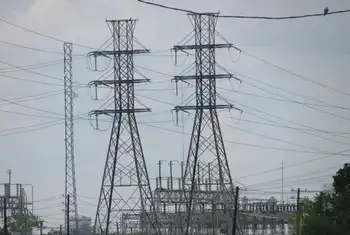
5 ways Texas can improve electricity reliability and save our economy
DALLAS - The blackouts in February shined a light on the fragile infrastructure that supports modern life. More and more, every task in life requires electricity, and no one is in charge of making sure Texans have enough.
Of the 4.5 million Texans who lost power last winter, many of them also lost heat and at least 100 froze to death. Wi-Fi stopped working and phones soon lost their charges, making it harder for people to get help, find someplace warm to go or to check in on loved ones.
In some places pipes froze, and people couldn’t get water to drink…


